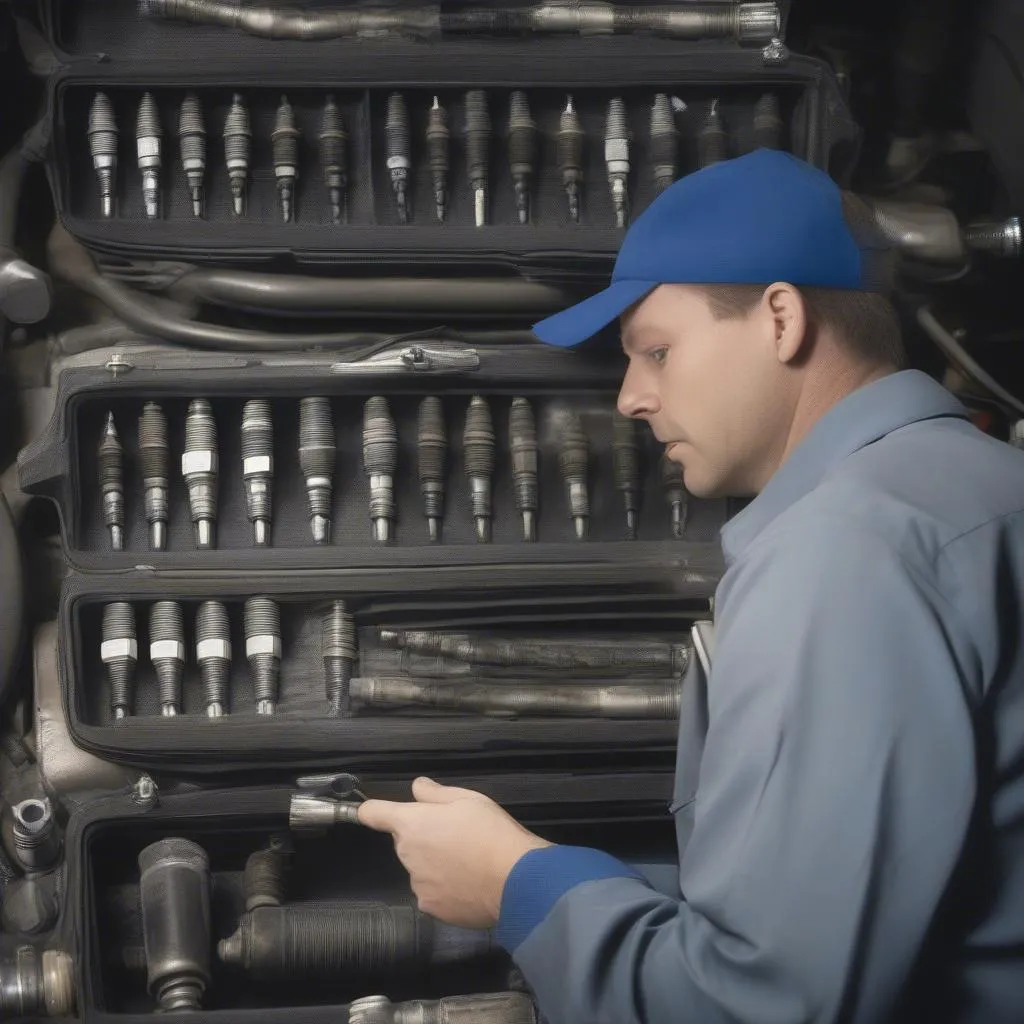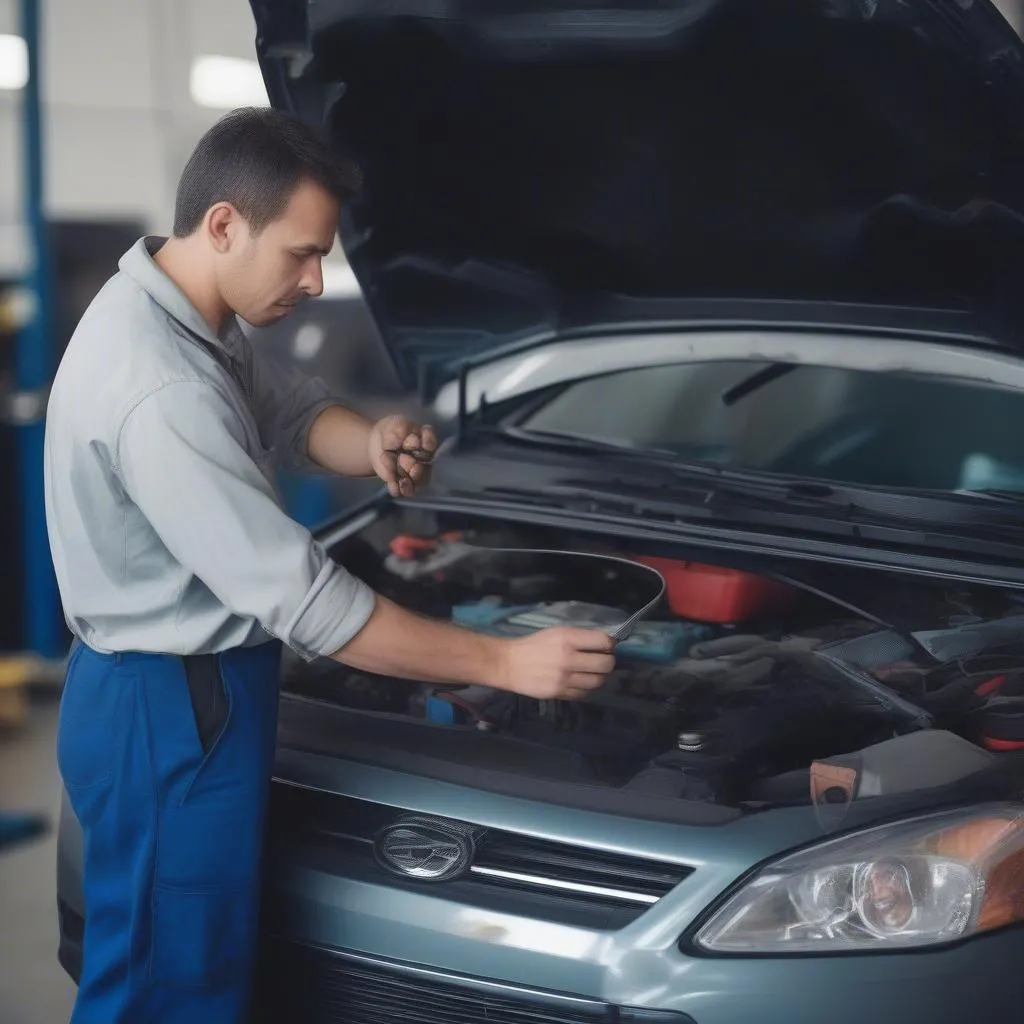Imagine this: you’re ready to head out for a long drive, turn the key, and your car starts, but with a noticeable shake. This can be quite alarming, right? While a car shaking when starting might seem like a minor issue, it could be a sign of something more serious.
In this article, we’ll delve into the common causes of car shaking when starting, explore troubleshooting tips, and provide solutions to help you get your car running smoothly again.
Understanding Car Shaking When Starting
Car shaking when starting is an indicator that something is amiss with the car’s engine. This shaking, also known as engine vibration, can be caused by various factors.
From a mechanic’s perspective:
Car shaking when starting can point to issues with the ignition system, fuel system, or even mechanical components. It’s crucial for a mechanic to diagnose the specific problem accurately to recommend the best course of action.
From an engineering perspective:
When an engine starts, it requires a precise balance of fuel and air to ignite properly. Any deviation from this balance can cause uneven combustion, leading to shaking.
From an economic perspective:
Car shaking when starting can lead to higher fuel consumption, increased wear and tear on engine components, and potentially costly repairs.
Common Causes of Car Shaking When Starting
1. Spark Plug Issues:
Spark plugs play a vital role in igniting the air-fuel mixture. Worn-out, damaged, or misfiring spark plugs can cause the engine to shake when starting. Imagine a spark plug as a tiny electrical switch that delivers the spark to ignite the fuel. If this switch isn’t working properly, the spark won’t be strong enough, leading to inefficient combustion and shaking.
2. Faulty Ignition Coils:
Ignition coils amplify the electrical signal from the spark plugs to create a stronger spark. A faulty ignition coil can prevent the spark plugs from firing properly, leading to misfires and shaking. Think of an ignition coil as a booster that provides extra power to the spark plugs. If the booster is weak or malfunctioning, the spark plugs won’t get enough power to ignite the fuel efficiently.
3. Fuel System Problems:
Fuel injectors deliver a precise amount of fuel into the engine. Clogged fuel injectors, dirty fuel filters, or a low fuel pressure can disrupt the fuel-air mixture, causing shaking. Imagine fuel injectors as miniature pumps that spray fuel into the engine. If these pumps are clogged or not working correctly, the engine won’t receive the right amount of fuel, leading to uneven combustion and shaking.
4. Vacuum Leaks:
Vacuum leaks can disrupt the air-fuel mixture, resulting in shaking. These leaks can occur in hoses, gaskets, or other components that create a vacuum in the engine. Think of a vacuum leak as a small hole in a pipe that allows air to escape, throwing off the delicate balance of air and fuel in the engine.
5. Engine Mounts:
Engine mounts are designed to absorb vibrations from the engine. Worn-out or damaged engine mounts can allow the engine to move excessively, resulting in shaking. Imagine engine mounts as shock absorbers for the engine. If these shock absorbers are worn out or damaged, the engine will vibrate more, leading to shaking.
Troubleshooting Car Shaking When Starting
If your car starts shaking, don’t panic. You can try these troubleshooting steps before taking it to a mechanic:
-
Check the Spark Plugs: Inspect the spark plugs for signs of wear, damage, or carbon buildup. You can even try replacing them with new ones.
-
Check the Ignition Coils: Check the ignition coils for any visible signs of damage or corrosion. If you have multiple ignition coils, try swapping them to see if the problem moves.
-
Inspect the Fuel System: Make sure the fuel filter is clean and there are no signs of leaks in the fuel lines. You can also check the fuel pressure using a fuel pressure gauge.
-
Look for Vacuum Leaks: Inspect hoses and gaskets for any cracks or holes. You can try using a vacuum gauge to check for leaks.
-
Check the Engine Mounts: Look for any signs of damage or wear on the engine mounts. You can try rocking the engine to see if it moves excessively.
When to See a Mechanic
If you’ve tried troubleshooting the problem and it persists, it’s best to take your car to a qualified mechanic. They can diagnose the issue accurately and recommend the necessary repairs.
Car Shaking When Starting: Related Questions
Here are some questions people often ask about car shaking when starting:
- Why is my car shaking when starting in cold weather? This could be due to a variety of factors, including thicker oil, a rich fuel mixture, or problems with the fuel pump.
- Why is my car shaking when starting and then stops? This could indicate a temporary issue with the spark plugs, fuel system, or vacuum leaks.
- Why is my car shaking when starting and the engine light is on? This suggests a serious issue with the engine, and you should take your car to a mechanic immediately.
Related Articles:
- Why is my car shaking when I start it?
- Car Shakes at Low Speed
- Why does my car shake when I accelerate?
Need Help with Your Car?
If you’re facing car shaking issues and need expert advice, feel free to reach out to us on WhatsApp: +84767531508. Our team of automotive professionals is available 24/7 to provide guidance and support.
Conclusion
Car shaking when starting can be a frustrating experience. However, by understanding the common causes, troubleshooting steps, and seeking professional help when needed, you can get your car running smoothly again. Remember, a car that’s shaking when starting can be a sign of a more serious problem, so it’s best to address it promptly.
If you found this article helpful, please share it with your friends and family! You can also leave a comment below if you have any questions or experiences to share.
 Car shaking when starting
Car shaking when starting
 Spark plug inspection
Spark plug inspection
 Car mechanic diagnosis
Car mechanic diagnosis